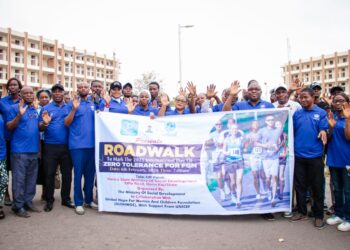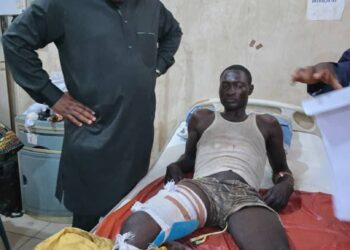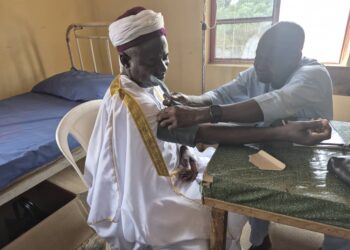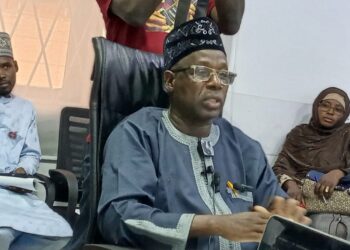Lokoja – The Nigeria Red Cross Society (NRCS), Kogi Branch has held a sensitisation meeting with 30 critical stakeholders on how to resolve issues militating against quality healthcare delivery in the state.
The acting Branch Secretary, Abubakar Abdullahi, while declaring the meeting open identified violence attacks on facilities as a major problem confronting healthcare delivery in the state.
He said the purpose of the stakeholders meeting was to sensitise them on the Health Care In Danger (HCID) initiative and get their suggestions on the ways to tackle the issues.

Speaking earlier, Chinwe Nwakanma, from NRCS headquarters, Abuja described “violence as the intentional use of physical force or power, threatened or actual, against oneself, another person, or against a group or community, which either results in or has a high likelihood of resulting in injury.”
She explained the HCID data collection system, laying emphasis on how to report HCID cases.
Although, She said data collection is majorly done by volunteers, and appealed to participants at the meeting to help by reporting cases to the volunteers or the branch.

Mr. Ebiloma Tijani, a representative of the Kogi State Hospital Management Board (KSHMB) stressed that violence is not a gender issue, saying that all genders of all ages are affected and prone to violence.
In addition,Tijani said that not everyone knows the laws backing the HCID, not to talk of how they wiill get cases across to the appropriate healthcare workers.
According to him , it is important for health workers to know their limitations and how the law works.
” Not everyone knows the laws backing the Health Care In Danger (HCID), so how do we get it across to the appropriate personal, health care workers for them to understand their limitations and how the law work,” he said.
Mrs Ajuma Lilian, Chairperson, International Federation of Women Lawyers ( FIDA ) said, the attitude of some health workers brought about the violence
She added that some health workers also engaged in unethical issues, saying this should be checkmated.
Mr Patrick Edogbanya from the National Orientation Agency said aside the stakeholders meeting, NRCS should take the message to the grassroots.
Finally, Mr Ebiloma Tijani appreciated the NRCS for a job well done and advised that the organisation works in partnership with the hospital management board in the area if data collection to achieve a good result.
He also said that the NRCS should equally help the board with banners kicking against violence in health care delivery.
Tijani said the banners will be displayed in strategic positions in government owned hospitals across the state.


















